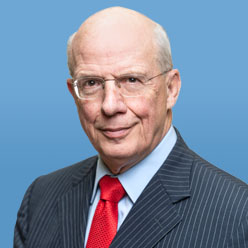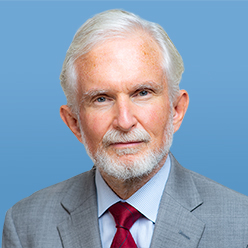On February 9, 2009, the American Foreign Policy Council convened a Capitol Hill conference on U.S. policy toward Russia. The high-profile event featured presentations by AFPC President Herman Pirchner, former U.S. Ambassador to Ukraine Steven Pifer, former Undersecretary of State for Arms Control Stephen Rademaker, U.S. Army War College Professor Stephen Blank, and AFPC Senior Associate E. Wayne Merry.
In his opening remarks, Pirchner noted that Russia's unsettled relationships (with the now independent countries that were once part of the Soviet Union) will have a profound effect on future U.S.-Russian relations, and on Moscow's own relationship with the "post-Soviet space."
Subsequently, Ambassador Pifer outlined the three priorities underlining Russia's recent approaches to its Near Abroad: regaining greater regional status, expanding its economic and political interests, and responding to perceived U.S. encroachment.
Shifting gears, Secretary Rademaker outlined a potential bright spot in future U.S.-Russian relations: strategic arms control.
In his remarks, Prof. Blank called Russia?s energy resources a "Swiss army knife" that the Kremlin wields against its former satellites, and against countries in the West.
In his closing presentation, Merry noted that Russia's leaders still see their foreign policy as a zero-sum game - and that, as a result, constructive collaboration will likely be limited to tactical issues, such as security in Afghanistan and new arms control accords and Islamist terrorism.
Want these sent to your inbox?
Subscribe
AFPC CONFERENCE: CONFERENCE SUMMARY—U.S. Policy Toward Russia: Charting A Way Forward
Related Categories:
Russia

